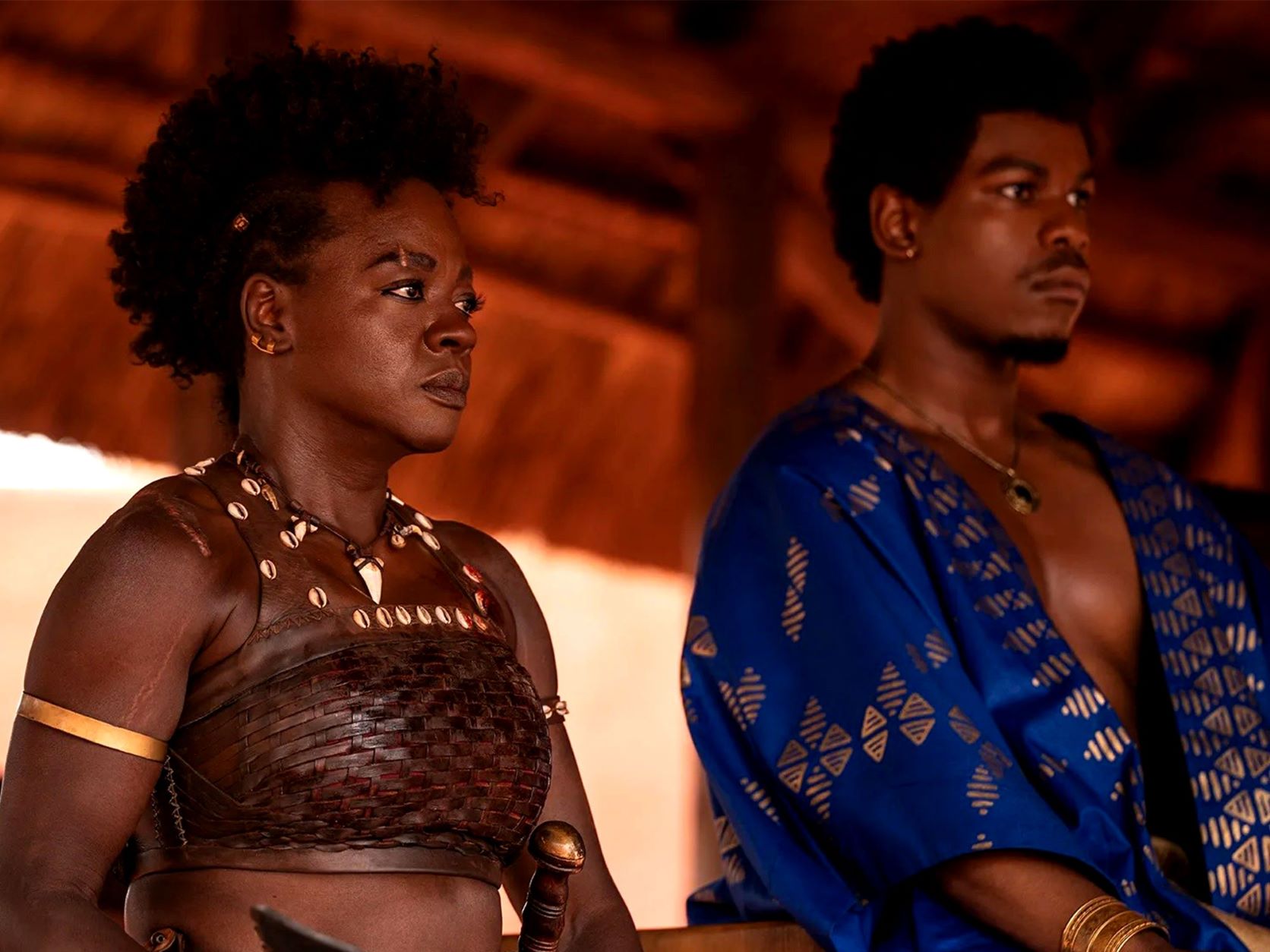The Woman King is set during 1823, in the West African kingdom of Dahomey. A place singularly unique in the world at that time, for its all-female military unit, and royal bodyguard, the Agojie. These Amazon-like soldiers protect the kingdom from rogue Oyo attacks, and enslavement kidnappings. It’s a time of complex change, as the Agojie General Nanisca (Viola Davis) pushes recently crowned King Ghezo (John Boyega) to abandon participation with the slave trade with Europe, in favour of mass export of palm oil instead.
It’s into this political and military powder-keg that new initiate Nawi (Thuso Mbedu) joins the Agojie, and under the strict but fair tutelage of (Lashana Lynch) becomes a warrior herself. At the same time, a Portuguese slaver delegation including the half-Dahomean, Malik (Jordan Bolger) arrive; keen to make deals while Malik familiarises himself with his slave-mother’s homeland. Meanwhile, vindictive and greedy Oyo agents prepare to seize Dahomey for themselves, setting the scene for confrontations and double-crosses galore.
The resulting film is an entertaining action film that has a delightfully unique feel to it, managing a solid production design with some well put together stunts, battles and action scenes. While it’s undeniable that the portrayal of the Agojie and some of the film’s style is borrowing heavily from the cultural cache opened by the popularity of Black Panther, it’s still nevertheless an enjoyable romp. Davis is effortlessly watchable, bringing an A-game passion and physicality to a B-tier script that doesn’t quite ever earn such a performance. Especially considering that Davis at 57 has the physique of a woman half her age, and can play a dozen emotions across her face with barely a twitch of her eye. The rest of the cast equally acquit themselves, particularly Mbedu as the wide-eyed apprentice and Sheila Atim as Nanisca’s oldest friend and subordinate, Amenza.
Much has also been made about historical accuracy in the build up to the film’s release, but the plain fact is, it’s no more or less historically accurate than Braveheart, and arguably more so than Spartacus or other historical films. While the narrative is a little fast and loose with the facts, it’s never outright inaccurate, and occurs at a fulcrum point in history where Dahomey lands as both the underdog, as well as paying active consideration to putting an end to their shameful part in the slave trade.
The main issue with The Woman King is that this feels like a grand sweeping epic of a film, trimmed down to the CliffsNotes, and melodrama. While the script itself isn’t anything spectacular, it has moments of real empathy. However the first half of the film both drags on and feels horribly over-abridged, to the point where scenes barely seem to begin before finishing suddenly, and being filled with jump-cuts and weird, jarring edits. What’s more, the film feels dreadfully simplistic at times, paying some lip service to the complexities of the political situations, but never slowing the story down enough to make them clear.
The result is a film that is entertaining but forgettable, and while it’s refreshing to hear a story told from an oft-ignored perspective, it could have been so much more.
On general cinema release now


Comments